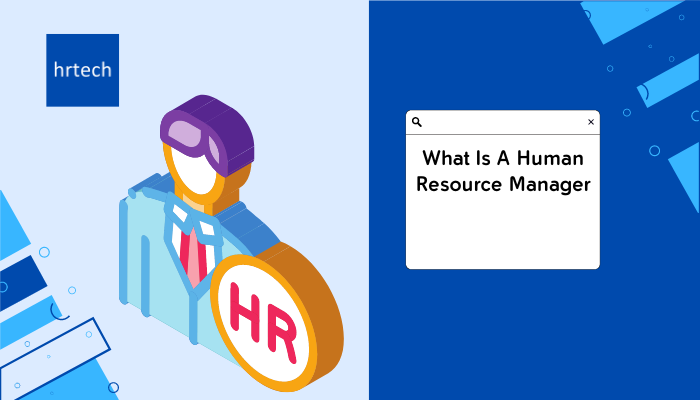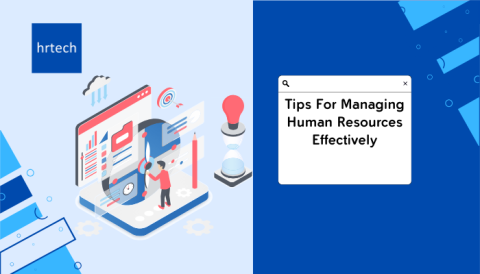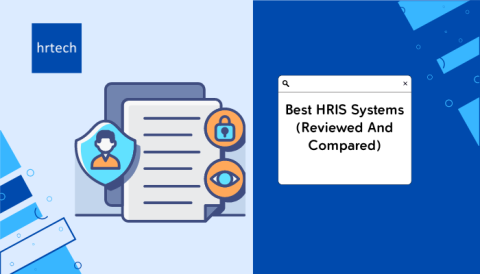Human Resource Manager—a role filled with lots of responsibilities, challenging, but a good pay—great for someone who likes to work with people, and wants every workday to be a different, exciting day!
In this in-depth guide, we do a full breakdown of the role of the HR manager, the skills and qualifications needed, and all steps required to launch a career in this field.
Plus, we will also share the challenges, pros, and cons associated with the role, to help you figure out whether or not it’s the right field.
So, without further ado, let’s dive in!
What Is A Human Resource Manager?
A human resource manager is a professional who oversees the human resources department of an organization. They are responsible for managing the employee lifecycle, from recruitment and hiring to training, development, and termination.
The role of an HR manager is crucial in ensuring that a company has the right talent to achieve its goals and objectives. They develop and implement HR strategies that align with the overall business strategy.
HR managers also ensure compliance with labor laws and regulations, maintain employee records, and handle employee relations issues.
They work closely with other departments to create a positive work environment and enhance employee engagement.
What Does A Human Resource Manager Do? Tasks And Responsibilities
The tasks and responsibilities of a human resource manager can vary depending on the size and type of organization they work for.
However, some common duties of HR Manager include:
1. Recruitment and Hiring:
HR managers develop and implement recruitment strategies to attract top talent. They create job descriptions, screen resumes, conduct interviews, and make hiring decisions.
2. Employee Onboarding:
Once new employees are hired, HR managers oversee the onboarding process. This includes orientation, training, and ensuring that new hires have all the necessary tools and resources to succeed in their roles.
3. Performance Management:
HR managers develop and implement performance management systems to evaluate employee performance and provide feedback. They also conduct performance reviews and set goals for employee development.
4. Compensation and Benefits:
HR managers develop and administer compensation and benefits programs. This includes salary structures, bonuses, healthcare plans, retirement plans, and other perks.
5. Employee Relations:
HR managers handle employee relations issues such as conflicts, grievances, and disciplinary actions. They also promote a positive work environment and foster open communication between employees and management.
6. Training And Development:
HR managers identify training needs and develop programs to enhance employee skills and knowledge. They also provide opportunities for career development and advancement.
7. Compliance:
HR managers ensure that the organization complies with labor laws and regulations. This includes maintaining employee records, filing necessary paperwork, and staying up-to-date with changes in employment law.
To be effective in their role, HR managers must have strong communication, interpersonal, and leadership skills. They must also be able to think strategically and make data-driven decisions.
Human Resource Manager Career Pathways
There are several career pathways to becoming a human resource manager.
The most common route is to earn a bachelor’s degree in human resources, business administration, or a related field.
Some universities also offer master’s degrees in human resources management, which can provide advanced knowledge and skills. Pursuing a master’s degree can be beneficial for those seeking senior-level positions or specialized roles.
Another pathway is to start in an entry-level HR position, such as an HR assistant or coordinator, and work your way up through experience and professional development.
Many organizations offer on-the-job training and support for employees looking to advance their careers in HR.
Certifications can also enhance your credentials and demonstrate your expertise in the field. The Society for Human Resource Management (SHRM) offers several certifications, including the SHRM-CP (Certified Professional) and SHRM-SCP (Senior Certified Professional).
To gain practical experience, consider internships or volunteer opportunities in HR departments. This can help you build the right skills, network with professionals, and learn about different aspects of HR management.
What Makes A Good Human Resource Manager?
A good human resource manager possesses a combination of technical skills, soft skills, and personal qualities. Here are some key attributes that make an effective HR manager:
1. Communication Skills:
HR managers must be able to communicate effectively with employees at all levels of the organization. They should be active listeners, able to convey information clearly, and handle sensitive situations properly.
2. Empathy:
HR managers deal with a wide range of employee issues, from personal challenges to professional development needs. Being able to understand perspectives of others is crucial for building trust and resolving conflicts.
3. Strategic Thinking:
HR managers must align their initiatives with the overall goals and objectives of the organization. They should be able to think strategically, anticipate future needs, and develop long-term plans for talent management and organizational development.
4. Adaptability:
Industries constantly change as new technologies come into the market. HR managers must be able to adapt to new challenges and opportunities. They should be open to new ideas, willing to learn and grow, and able to pivot quickly when necessary.
5. Integrity:
HR managers have access to sensitive information and must handle it with discretion and professionalism. They should be trusted advisors who act with integrity and always prioritize the best interests of the organization and its employees.
6. Leadership:
HR managers often serve as role models and mentors for other employees. They should be able to inspire and motivate others, build a positive work culture, and lead others.
7. Analytical Skills:
HR managers must be able to analyze data and metrics to make informed decisions. They should be comfortable working with numbers, interpreting trends, and using analytics tools to drive business results.
In addition to these qualities, a good HR manager should have a deep understanding of employment laws, regulations, and best practices.
They should also be committed to continuous learning and professional development to stay current with the latest trends and technologies in the field.
How To Become A Human Resource Manager?
Becoming a human resource manager requires a combination of education, experience, and professional development. Here’s a step-by-step guide to help you the entire career pathway:
Step 1 – Earn A Bachelor’s Degree (4 Years)
The first step is to earn a bachelor’s degree in human resources, business administration, or a related field.
Some universities also offer specialized programs in human resource management.
During your undergraduate studies, take courses in areas such as organizational behavior, employment law, compensation and benefits, training and development, and business ethics.
Step 2 – Gain Entry-Level HR Experience (1-3 Years)
After completing your degree, look for entry-level positions in human resources, such as HR assistant, recruiter, or HR coordinator. These roles will help you gain practical experience and learn the fundamentals of HR operations.
Consider internships or part-time jobs in HR departments while still in school to gain valuable experience and make professional connections.
Step 3 – Pursue Professional Certifications
Professional certifications can enhance your credibility and demonstrate your expertise to employers. The Society for Human Resource Management (SHRM) offers several certifications:
| Certification: | Experience Required: |
| SHRM-CP (Certified Professional) | Less than 500 hours of relevant experience |
| SHRM-SCP (Senior Certified Professional) | At least 1,000 hours of relevant experience |
Other organizations, such as the HR Certification Institute (HRCI), also offer certifications for HR professionals at various career stages.
Step 4 – Advance To HR Manager Roles (3-5 Years)
As you gain experience and develop your skills, look for opportunities to take on more responsibility and advance to HR manager roles. This may involve managing a small team, overseeing specific HR functions, or leading projects.
Continue to build your knowledge and stay updated on industry trends by attending conferences, workshops, and networking events.
Step 5 – Consider a Master’s Degree
While not always required, earning a master’s degree in human resources, business administration, or a related field can help you stand out in the job market and qualify for higher-level positions.
Many universities offer part-time or online programs designed for working professionals, allowing you to balance your education with your career.
Step 6 – Pursue Senior-Level Positions (5+ Years)
With significant experience and advanced education, you may be ready to pursue senior-level positions, such as HR director, VP of human resources, or chief human resources officer (CHRO).
At this level, you’ll be responsible for developing and implementing HR strategies, leading large teams, and contributing to the overall success of the organization.
Throughout your career, focus on developing your leadership, communication, and strategic thinking skills. Stay active in professional associations, seek out mentorship opportunities, and continuously invest in your own learning and growth.
Remember, the path to becoming an HR manager may vary depending on your individual circumstances and the specific needs of your employer.
However, by combining education, experience, and professional development, you can build a successful career in this HR field.
How Much Do Human Resource Managers Make?
On an average, The salary of a human resource manager varies based on factors like experience, education, industry, and location.
| Experience Level: | Salary Range: |
| Entry-level (0-5 years) | $30,000 – $75,000 |
| Mid-career (5-10 years) | $80,000 – $120,000 |
| Experienced (10-20 years) | $100,000 – $160,000 |
| Senior-level (20+ years) | $120,000 – $200,000+ |
These figures are averages and can vary widely depending on the specific industry, company size, and location.
For example, HR managers in large cities with higher cost of living often earn higher salaries than those in smaller cities.
Many HR managers also receive benefits like health insurance, retirement plans, and paid time off. Some organizations offer bonuses or stock options based on performance.
Earning advanced degrees or professional certifications can also impact earning potential. HR managers with a master’s degree or certifications like SHRM-CP or SHRM-SCP often get higher salaries than those with only a bachelor’s degree.
What Challenges Do Human Resource Managers Face In Their Role?
Human resource managers face various challenges in their role, from managing employee relations to staying compliant with employment laws.
Here are some of the most common challenges:
1. Attracting And Retaining Talent
Attracting and retaining top talent is a major challenge for HR managers.
They develop effective recruitment strategies, create compelling job descriptions, and provide competitive compensation and benefits packages to attract the best candidates.
HR managers work to keep employees engaged and motivated. This involves implementing employee recognition programs, providing opportunities for professional development, and creating a positive work culture.
2. Managing Employee Performance
HR managers develop and implement performance management systems to evaluate employee performance and provide feedback. This requires balancing the needs of the organization with the individual needs of employees.
HR managers handle performance issues and disciplinary actions when necessary. This requires strong communication skills, empathy, and the ability to remain objective and fair.
3. Ensuring Compliance
HR managers stay up-to-date with employment laws and regulations related to discrimination, harassment, wages and hours, and employee benefits. Not complying with these laws can result in costly legal battles and damage to the organization’s reputation.
HR managers ensure that the organization’s policies and procedures are consistent with these laws and that all employees are trained on their rights and responsibilities.
4. Managing Organizational Change
Organizational change is constant in business. HR managers help employees adapt to these changes.
This involves managing layoffs, mergers, and acquisitions, or implementing new technologies or processes. HR managers communicate changes effectively, provide support and resources to employees, and help maintain morale during times of transition.
5. Balancing Competing Priorities
HR managers balance competing priorities, such as the needs of employees versus the needs of the organization. They make tough decisions and find creative solutions to problems.
For example, an HR manager may need to balance the desire to provide generous employee benefits with the need to control costs. Or they may need to balance employee privacy with the need to investigate a harassment complaint.
Managing these challenges requires strategic thinking, emotional intelligence, and problem-solving skills.
Successful HR managers handle these challenges professionally while keeping the best interests of the organization and its employees in mind.
What Tools And Softwares Do Human Resource Managers Use?
Human resource managers use a variety of tools and software to simplify their work and manage employee data effectively. Some common tools include:
Human Resource Information Systems (HRIS):
HRIS software helps HR managers store, organize, and manage employee data. This includes personal information, job history, performance reviews, and benefits administration.
Applicant Tracking Systems (ATS):
ATS software automates the recruitment process by sorting and filtering job applications, scheduling interviews, and managing communication with candidates.
Performance Management Software:
This type of software helps HR managers track employee performance, set goals, and conduct performance reviews.
Learning Management Systems (LMS):
LMS software enables HR managers to create, deliver, and track employee training and development programs.
Payroll Software:
Payroll software automates the process of calculating and distributing employee paychecks, as well as managing tax withholdings and other deductions.
Other tools HR managers use include video conferencing software for remote interviews, social media for recruitment and employer branding, and data analytics tools to make informed decisions about workforce planning and talent management.
Did you know that at our hrtech’s marketplace, you can find a wide-range of software solutions that are helpful in Human Resource Management? Check out now to explore more!
Is It Tough To Become A Human Resource Manager?
Becoming a human resource manager requires a combination of education, experience, and skills. While it can be challenging, it is achievable with dedication and hard work.
Pros Of Being An HR Manager:
- Opportunity to make a positive impact on employees’ lives and contribute to organizational success.
- Varied work that prevents boredom and offers new challenges every day.
- Potential for career growth and advancement into specialized roles or leadership positions.
Cons Of Being An HR Manager:
- High level of responsibility and potential for stress when dealing with complex employee issues
- Need to balance the needs of employees with the goals of the organization
- Requirement to stay up-to-date with constantly changing employment laws and regulations
Who It’s Best For:
- Individuals who enjoy working with people and helping others succeed.
- Those who possess strong communication, problem-solving, and decision-making skills.
- People who can handle confidential information with discretion and integrity.
Who It’s Not Best For:
- Those who prefer working independently and do not enjoy constant interaction with others.
- Individuals who struggle with managing stress and emotional challenges.
- People who do not enjoy administrative tasks or paying close attention to details.
How Long Does It Take To Become A Human Resource Manager?
The time it takes to become a human resource manager varies depending on your education and experience. Here’s a general timeline overview:
- Earn a bachelor’s degree in human resources, business administration, or a related field (4 years)
- Gain entry-level HR experience through internships or jobs like HR assistant or coordinator (1-3 years)
- Pursue a master’s degree in human resources or a related field (optional, 1-2 years)
- Obtain professional certifications like SHRM-CP or SHRM-SCP (optional, varies)
- Advance to HR manager positions through experience and demonstrated success (3-5 years)
On average, it can take 5-7 years to become an HR manager, depending on your career path and education choices. However, some individuals may achieve this goal faster or slower based on their unique circumstances and opportunities.
Final Thoughts
So, what is a Human Resource Manager?
It’s the person in an organization who handles everything right from hiring top talent to managing and ensuring employee development, talent retention, and building a positive team that helps the company grow.
The job role offers a nice payscale starting from $35,000 – $45,000 per year—and going upwards of $100,000 or even $200,000.
Apart from the huge package, you also get an exciting job role where every day is different—and chances are—you might get stressed or overwhelmed, but never bored.
It does take some education qualifications, essential skills, and experience to be successful, but the benefits you get in terms of compensation, job satisfaction are great.
Ready to improve your HR skill sets? Visit hrtech today and explore different certification and training programs related to Human Resource Management.





